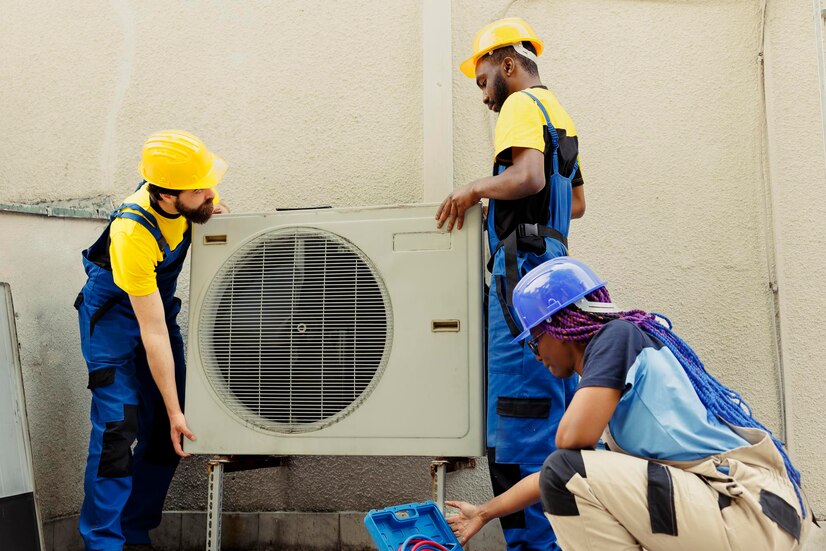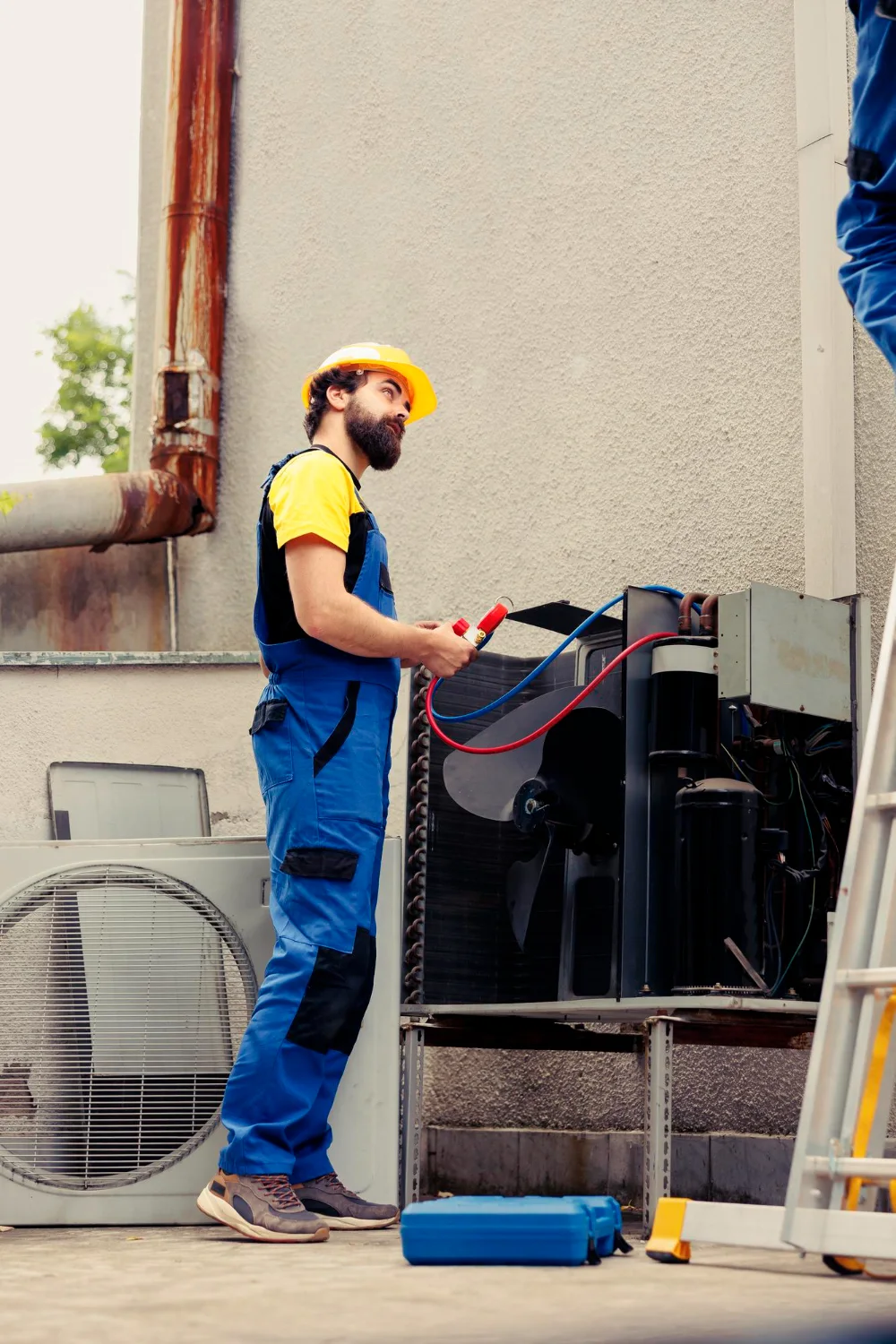Why Indoor Air Quality Matters and How Your HVAC System Helps

Importance of Indoor Air Quality and HVAC Benefits
In the hustle and bustle of modern life, we often overlook the quality of the air we breathe indoors. However, indoor air quality (IAQ) plays a crucial role in our overall health and well-being. From respiratory issues to allergies and even productivity levels, the air we breathe indoors can have a significant impact on our lives. Fortunately, your HVAC (Heating, Ventilation, and Air Conditioning) system can be a powerful ally in maintaining optimal indoor air quality.
Reasons Why You Must Do Indoor Air Quality Monitoring
While your HVAC system plays a crucial role in maintaining indoor air quality, regular monitoring is essential to ensure that your efforts are effective. Indoor air quality can fluctuate due to various factors such as seasonal changes, outdoor pollution, and indoor activities. Here’s why you should consider implementing indoor air quality monitoring:

1. Identify pollutants:
Indoor air quality monitoring allows you to identify specific pollutants present in your indoor environment. By monitoring levels of common indoor air contaminants such as particulate matter, VOCs, carbon monoxide, and radon, you can take targeted actions to reduce exposure and improve air quality.
2. Early detection of problems:
Monitoring indoor air quality enables early detection of potential issues with your HVAC system or indoor environment. Sudden spikes in pollutant levels or changes in air quality parameters can indicate problems such as mold growth, leaks, or malfunctioning equipment, allowing you to address them promptly before they escalate.
3. Customized solutions:
Every indoor environment is unique, and factors such as building materials, occupancy, and activities can influence air quality. By monitoring indoor air quality, you can tailor solutions to address specific issues and optimize IAQ based on the needs of your space and occupants.
4. Health and comfort:
Indoor air quality directly impacts human health and comfort. Monitoring IAQ parameters such as temperature, humidity, and air pollutants helps ensure a healthy and comfortable indoor environment, reducing the risk of respiratory problems, allergies, and other health issues associated with poor air quality.
5. Data-driven decisions:
Indoor air quality monitoring provides valuable data that can guide decision-making processes related to building maintenance, HVAC system upgrades, and environmental policies. By analyzing trends and patterns in air quality data, you can make informed decisions to improve IAQ and enhance overall occupant well-being.
5 Ways How HVAC System Can Assist With Indoor Air Quality
Your HVAC system is not just a device for maintaining thermal comfort; it also plays a pivotal role in testing air quality in your home. Here are several ways your HVAC system can contribute to creating a healthier indoor environment:
Air filtration
1. Air filtration:
The air filters in your HVAC system are the first line of defense against airborne pollutants. These filters trap dust, pollen, pet dander, and other particles, preventing them from circulating throughout your home. High-efficiency particulate air (HEPA) filters are particularly effective at capturing even the smallest particles, improving indoor air quality significantly.
2. Ventilation :
Proper ventilation is essential for removing stale air and replenishing indoor spaces with fresh outdoor air. Your HVAC system can incorporate ventilation mechanisms such as exhaust fans, supply fans, and air exchange systems to ensure adequate airflow and ventilation. By introducing outdoor air into your home, your HVAC system helps dilute indoor pollutants and maintain healthy indoor air quality.
3. Humidity control:
Excess humidity can lead to mold growth, while low humidity levels can cause discomfort and respiratory issues. Your HVAC system can regulate indoor humidity levels to maintain a comfortable and healthy environment. Humidity control features such as dehumidifiers and humidifiers help prevent mold and mildew growth and alleviate dryness, ensuring optimal indoor air quality year-round.
4. Air purification:
In addition to filtration, some HVAC systems feature built-in air purification technologies to further enhance indoor air quality. UV-C lights, electronic air cleaners, and photocatalytic oxidation systems can help eliminate bacteria, viruses, and other harmful pathogens from the air, reducing the risk of respiratory infections and allergies.
5. Duct cleaning and sealing:
Over time, dust, mold, and other contaminants can accumulate within your HVAC ductwork, compromising indoor air quality. Regular duct cleaning and sealing help remove these contaminants and prevent them from being circulated throughout your home. Clean, well-sealed ductwork ensures that the air delivered by your HVAC system remains clean and free of pollutants.
6. Smart thermostats and IAQ sensors:
Advanced HVAC systems often incorporate smart thermostats and indoor air quality sensors. This makes testing air quality in your home efficient. These devices can monitor indoor air quality parameters such as temperature, humidity, and pollutant levels, allowing your HVAC system to adjust operation settings accordingly. By responding dynamically to changes in indoor air quality, your HVAC system maximizes comfort and energy savings while maintaining excellent IAQ.
Conclusion
Investing in indoor air quality is investing in your health and comfort. By leveraging the capabilities of your HVAC system, you can create a healthier and more enjoyable indoor environment for you and your family. Remember to prioritize regular maintenance and keep your system running smoothly to reap the full benefits of improved indoor air quality.
FAQs About HVAC Maintenance
Q:1 Can poor indoor air quality affect my health?
A: Yes, poor indoor air quality can lead to various health issues, including respiratory problems, allergies, headaches, fatigue, and exacerbation of existing conditions like asthma.
Q:2 How often should I replace the air filters in my HVAC system?
A: It’s recommended to replace or clean air filters every 1 to 3 months, depending on factors such as filter type, indoor air quality, and usage. Regular filter maintenance helps ensure efficient filtration and optimal HVAC system performance.
Q:3 What are some signs that my HVAC system may be contributing to poor indoor air quality?
A: Signs of potential HVAC-related indoor air quality issues include musty odors, visible mold growth around vents or ducts, excessive dust accumulation, uneven temperature distribution, and increased allergy or respiratory symptoms among occupants. Regular HVAC maintenance and indoor air quality assessments can help identify and address these issues promptly.
